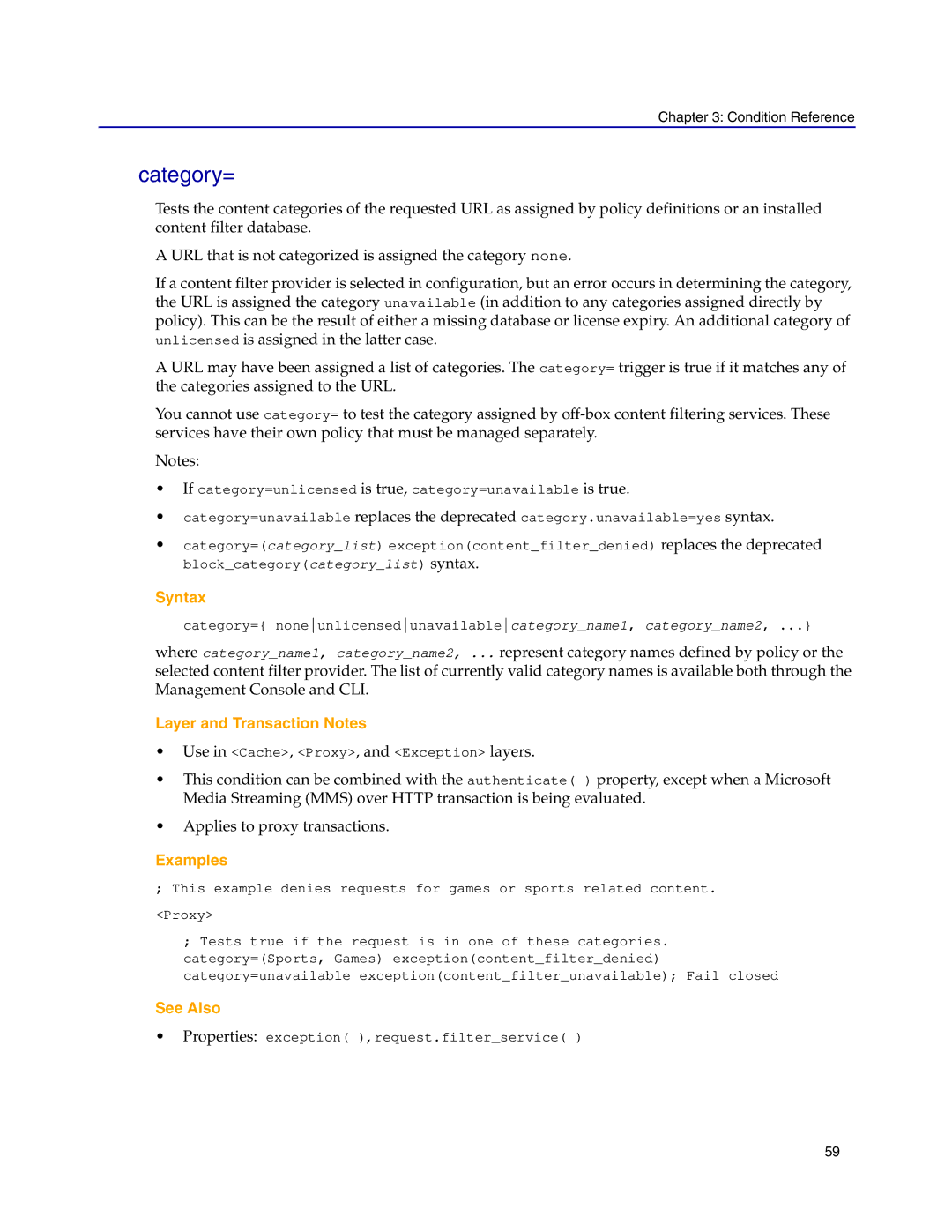Chapter 3: Condition Reference
category=
Tests the content categories of the requested URL as assigned by policy definitions or an installed content filter database.
A URL that is not categorized is assigned the category none.
If a content filter provider is selected in configuration, but an error occurs in determining the category, the URL is assigned the category unavailable (in addition to any categories assigned directly by policy). This can be the result of either a missing database or license expiry. An additional category of unlicensed is assigned in the latter case.
A URL may have been assigned a list of categories. The category= trigger is true if it matches any of the categories assigned to the URL.
You cannot use category= to test the category assigned by
Notes:
•If category=unlicensed is true, category=unavailable is true.
•category=unavailable replaces the deprecated category.unavailable=yes syntax.
•category=(category_list) exception(content_filter_denied) replaces the deprecated block_category(category_list) syntax.
Syntax
category={ noneunlicensedunavailablecategory_name1, category_name2, ...}
where category_name1, category_name2, ... represent category names defined by policy or the selected content filter provider. The list of currently valid category names is available both through the Management Console and CLI.
Layer and Transaction Notes
•Use in <Cache>, <Proxy>, and <Exception> layers.
•This condition can be combined with the authenticate( ) property, except when a Microsoft Media Streaming (MMS) over HTTP transaction is being evaluated.
•Applies to proxy transactions.
Examples
;This example denies requests for games or sports related content. <Proxy>
;Tests true if the request is in one of these categories. category=(Sports, Games) exception(content_filter_denied) category=unavailable exception(content_filter_unavailable); Fail closed
See Also
• Properties: exception( ), request.filter_service( )
59
